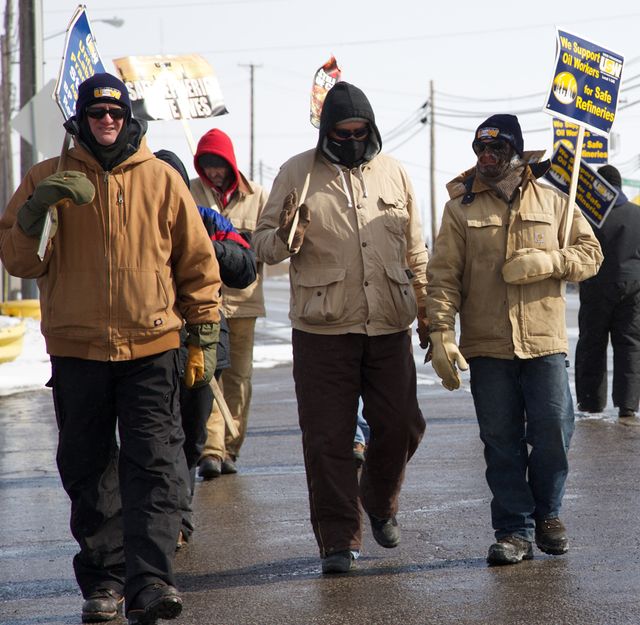Ed Hightower
A commentary in Crain’s Chicago Business last week by law professor David M. Shapiro shed light on a new regulation by the federal Bureau of Prisons that severely limits inmates’ contact with family members, clergy, consular officials and other visitors. The rule sets guidelines for the bureau’s Communications Management Units (CMUs) and allows them to isolate inmates, limit their access to educational materials, religious activities, and media contact.
“Communications Management Unit” is the Orwellian title given to two federal prisons, one in Terre Haute and the other in Marion, Illinois, which operate much like the infamous CIA black sites, holding inmates virtually incommunicado in degrading and illegal conditions.
Shapiro, a clinical assistant professor of law at the Roderick and Solange MacArthur Justice Center at Northwestern University School of Law, sketches the history of CMUs, beginning with the September 11, 2001 terror attacks and the subsequent bipartisan attacks on democratic rights.
In 2005, the Justice Department established the Correctional Intelligence Initiative , a program designed to counter the alleged threat of Islamic radicalization in federal prisons. In 2006, the Bureau of Prisons purged the shelves of religious libraries available to prisoners of certain texts, including books by the medieval Jewish philosopher, physician and scholar, Maimonides.
The Bureau conducted its book purge under the banner of the Standardized Chapel Library Project, which employed a secret panel of supposed religious experts to create an approved list of 150 book titles and 150 multimedia resources covering 20 religions, while providing no funding to prisons to obtain any of them. At the same time, the Bureau of Prisons directed chaplains to remove all unapproved texts and other media. This meant the dismantling of large collections of books and media in some cases, donated by religious institutions and private parties.
At the same time, Shapiro writes, the bureau has enacted other rules attacking the bedrock democratic right to legal counsel, by allowing federal agents to snoop on communications between prisoners and their attorneys. This unconstitutional practice makes the right to counsel meaningless, as prisoners can expect to be punished for reporting abusive conditions, not to mention having their legal strategies passed on to prosecutors, giving the latter an unfair and illegal advantage in judicial proceedings. Shapiro writes that federal prisons in New York state and Florence, Colorado, have allowed this type of snooping.
Physical treatment of prisoners in federal facilities has also mimicked that of Abu Ghraib, Guantanamo Bay, and the CIA black sites, with prolonged shackling, stress positions, and solitary confinement used as punishment.
The Bureau of Prisons created the CMU facilities between 2006 and 2008 to house inmates purportedly posing a threat to national security. Any inmate at a federal prison can be transferred to a CMU for any reason, without judicial review. Once inside, prisoners have virtually no contact with the outside world, making it almost impossible to expose the conditions they face.
Officially, the bureau detains only prisoners posing a national security threat, without regard to past behavior, political or religious belief. In reality, more than two-thirds of CMU inmates are Muslims, even though Muslims comprise just six percent of the total federal prison population. According the to Center for Constitutional Rights, CMUs house inmates with little or no disciplinary history. Instead, CMU inmates tend to be either Muslims or political activists of some sort, including prisoners’ rights advocates.
CMU inmates cannot physically interact with any visitors, including their children or spouses.
Likewise, inmates can only have three 15-minute phone calls per month (the bureau originally proposed a single 15-minute call per month) Other federal inmates get 300 minutes per month.
Contact of any kind is limited to: “immediate family members, US Courts, federal judges, US Attorney’s Offices, Members of US Congress, the Bureau, other federal law enforcement entities, and the inmate’s attorney,” according to the regulation.
Written contact can be limited to six double-sided pieces of paper per week to and from a single recipient. In person visits can be limited to four one-hour visits per month (the bureau proposed just one initially). Total visitation time allowed is one quarter of the amount allowed for inmates in federal “supermax” facilities.
CMU inmates have little or no access to job training and other rehabilitative programs available to other federal inmates. In addition, some CMU inmates are completely isolated even from other inmates.
The new Bureau of Prison regulations on the CMUs went into effect on February 23.
The publication notes for the regulations paint the new measures in rosy colors: “These regulations represent a ‘floor’ beneath which communications cannot be further restricted.”
As in other aspects of the war on democratic rights, the US government is at great pains to provide an example of how such inroads on basic legal principles further any interest in securing the country against terrorism.
Far from protecting the population from terrorism, the new CMU regulations serve two related functions: first, to intimidate, incarcerate and torture opponents of US imperialist policies and second, to limit the chance of exposing torture at these domestic GITMOs by sealing inmates off from the outside world.


